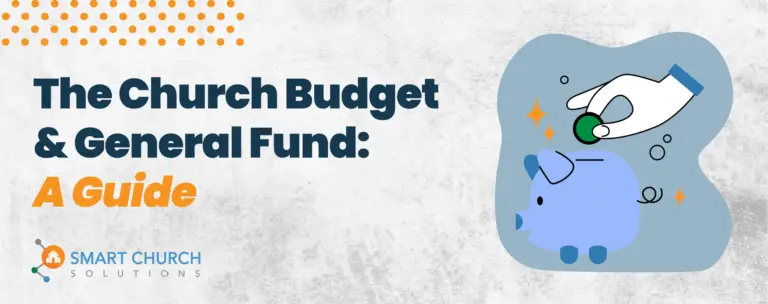Entrusted is not a word we use on a regular basis in our modern vocabulary. In fact, our consumer centric culture is more likely to use the word “entitled” or the phase “I deserve…” more often. For those of us in the church, we are likely familiar with the parable of the “Talents” in Matthew 25:14–30. This is by far the most common use of the word entrusted to us church folk.
Take a minute and read that passage…I will wait…
OK…the word entrusted is used three times in the NIV for those verses. What struck me is that the man who was entrusted with one bag of gold did not refer to the fact that the master had ENTRUSTED the money to him as the first two did. Instead, he immediately went into his backside-covering diatribe. Clearly, he did not understand what entrusted meant.
Staying with the NIV, let’s explore some other passages where the word entrusted is used:
- Genesis 39:4 – Joseph found favor in his eyes and became his attendant. Potiphar put him in charge of his household, and he entrusted to his care everything he owned.
- Leviticus 6:2 – If anyone sins and is unfaithful to the Lord by deceiving a neighbor about something entrusted to them or left in their care or about something stolen, or if they cheat their neighbor.
- 2 Kings 22:9 – Then Shaphan the secretary went to the king and reported to him: “Your officials have paid out the money that was in the temple of the Lord and have entrusted it to the workers and supervisors at the temple.
- 1 Chronicles 9:26 – But the four principal gatekeepers, who were Levites, were entrusted with the responsibility for the rooms and treasuries in the house of God.
- 2 Chronicles 34:10 – Then they entrusted it to the men appointed to supervise the work on the Lord’s temple. These men paid the workers who repaired and restored the temple.
- 2 Chronicles 34:17 – They have paid out the money that was in the temple of the Lord and have entrusted it to the supervisors and workers.
- Ezra 7:19 – Deliver to the God of Jerusalem all the articles entrusted to you for worship in the temple of your God.
- Jeremiah 29:3 – He entrusted the letter to Elasah son of Shaphan and to Gemariah son of Hilkiah, whom Zedekiah king of Judah sent to King Nebuchadnezzar in Babylon.
- Romans 3:2 – Much in every way! First of all, the Jews have been entrusted with the very words of God.
- Galatians 2:7 – On the contrary, they recognized that I had been entrusted with the task of preaching the gospel to the uncircumcised, just as Peter had been to the circumcised.
There are more direct and indirect uses of the word and/or intent of the word entrusted (especially as you look at other translations of the Bible and also include the word trust). It is fascinating to see all the things that were entrusted.
What is the common thread through all of these examples?
Someone trusted (thus en-trusted) someone to take care of the item(s). They were not given to someone to squander or to take lightly. They were given intentionally with the full expectation that they would be cared for as if the one entrusting the item(s) was still caring for it.
I have a question: What do we call the person to whom something has been entrusted? Entrustee? Don’t think so.
The word is “steward” (as in stewardship…get where I am going?).
A steward is someone who has been given a task to complete by someone else or who has been given something (i.e. entrusted) by someone else to use for the purposes of the owner. A steward acts as an agent of the owner, they are not the owner! They are not free to do whatever they like with what is given to them!
Here is one definition of “steward” – a person who manages another’s property or financial affairs; one who administers anything as the agent of another or others.*
In essence, a steward is someone who takes care of someone else’s STUFF! The stuff entrusted to them. It is that simple.
The key is that when something is entrusted to you, it isn’t yours, it belongs to someone else. The one who entrusted it to you has the right to dictate what you do with it or expects you to use the utmost diligence to care for it. You may well be expected to use the entrusted thing for their purposes rather than yours.
The person who has been entrusted (i.e. an employee) cannot merely do whatever she likes, but instead has a job to do with accountability. If the work is not done, then trust has been violated. If a big task has been entrusted, such as maintaining and managing our ministry facilities, then we should be intentional about how we live our lives in order to get to the end and hear God say “well done, you have achieved the task entrusted to you”. This line of thought has been what has driven me for years as I have served the church and the facilities entrusted to them.
God doesn’t entrust tasks, or facilities, to people unless he is committed to making them worthy of that trust! We are to take our responsibility as Facility Stewards seriously. If you believe that everything on Earth belongs to God as I do, then we must accept the fact that our houses of worship, churches, administration buildings, education facilities, recreation complexes and the rest that we utilize to fulfill the ministry, mission and vision God has given us…have been ENTRUSTED to us as we will be held responsible by the “owner” of all of these things as to how we stewarded them.
God has entrusted our facilities to us for ministry. Let’s take that responsibility seriously and invest the time, finances, and attention they require.
Entrusted is the foundation block to truly understanding the need for intentional Facility Stewardship!
*Source: https://www.dictionary.com/browse/steward








